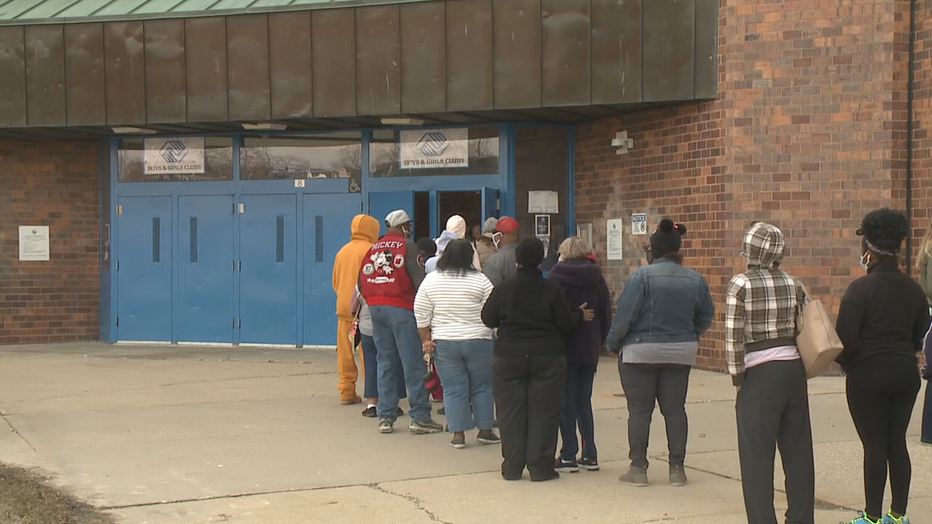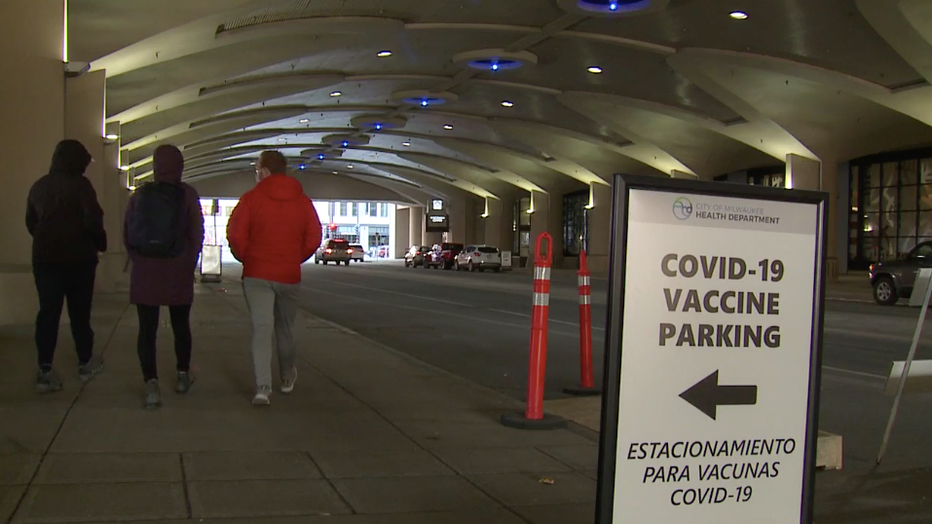Milwaukee County virus cases rising; UK variant, kids of concern

Milwaukee County virus cases rising; UK variant, kids of concern
Milwaukee County's latest COVID-19 case count shows an average of 117 new infections per day -- nearly a 100% increase over the past three weeks.
MILWAUKEE - The Milwaukee Health Department is opening COVID-19 vaccinations to everyone ages 16 and older at its two walk-in clinics.
Previously, the sites at North Division High School and South Division High School were only administering shots to residents from 10 select ZIP codes.
Local health leaders said not only are cases on the rise, but the virus could be impacting children more than ever before.
Milwaukee County's latest COVID-19 case count shows an average of 117 new infections per day -- nearly a 100% increase over the past three weeks.

Free, walk-in COVID-19 vaccine clinic at North Division High School
Dr. Ben Weston with the Milwaukee County Office of Emergency Management said the increase is likely the result of the B.1.1.7 -- or U.K. variant -- becoming widespread. He said the new strain is 50% more contagious and 60% more severe than the original virus.
"If you get infected today with the new variant, you may be 60% more likely to be hospitalized or die from that infection," Weston said.
Most troubling, preliminary data shows kids may be readily transmitting the new strain. Just this week, a B.1.1.7 outbreak was linked to a day care in Dane County.
"Cases like that Dane County case and others like it around the country are definitely raising alarms," said Weston.

COVID-19 vaccination clinic at the Wisconsin Center
Health officials said the outbreak won't affect local health orders.
"Many of our child care centers have been open, and they all have safety plans in place, including in our schools," said Milwaukee Health Commissioner Kirsten Johnson. "We feel fairly confident about the mitigation measures that are in place, including with MPS opening."
Instead, they say the situation underscores the importance of getting vaccinated.
"The one thing all the vaccines have in common is the efficacy in hospitalization and death. And that’s 100%," Weston said.
FREE DOWNLOAD: Get breaking news alerts in the FOX6 News app for iOS or Android.
Doctors said they aren't sure yet why children may be affected more by the B.1.1.7 strain compared to the conventional strain, which they were largely protected from.
They anticipate more data will soon come out on the topic. The good news, so far, is infections in children have been mild.

Milwaukee County leaders give COVID-19 update
Officials with Milwaukee County and its municipalities on Tuesday discussed the latest COVID-19 developments and information.
Featured
All vets, spouses, caregivers can get COVID vaccine at Milwaukee VA
The Milwaukee VA Medical Center announced it is now giving COVID-19 vaccinations to all veterans – regardless of enrollment status – as well as spouses and caregivers.
Featured
Madison to become Wisconsin's 3rd FEMA mass vaccination site
The COVID-19 vaccination center at the Alliant Energy Center in Madison will be able to increase the number of doses delivered by 2,100 a week thanks to new staffing support from the federal government



